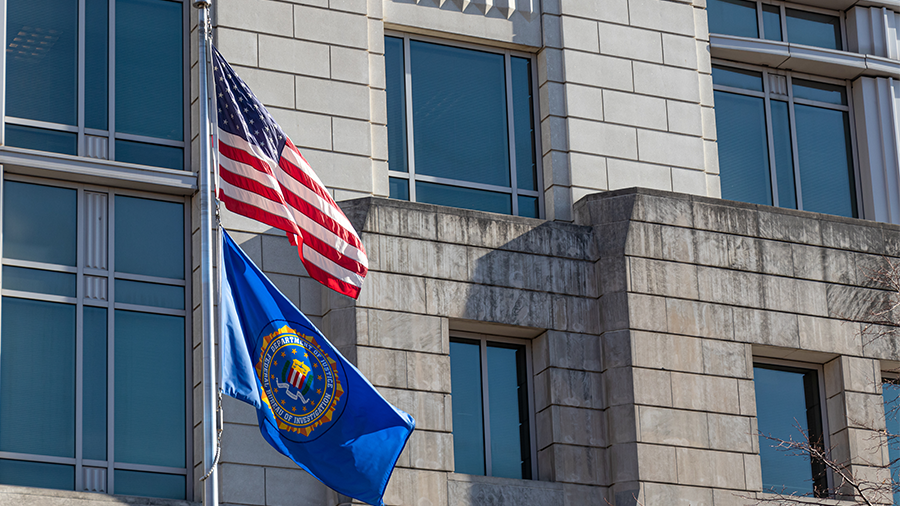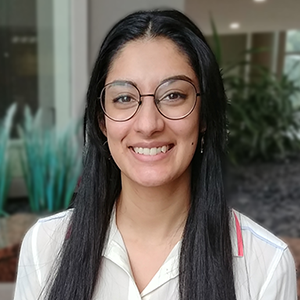Two years of the DOJ’s China Initiative
The U.S. Department of Justice’s China Initiative has been operating for two years, during which time the agency has brought charges in dozens of cases, but only a handful have involved academic scientists. None of those researchers has been charged with economic espionage. Instead, cases against academics have been focused on grant fraud, filing false tax returns or making false statements.
The China Initiative began during the Trump administration in response to China using a variety of methods to obtain information and technologies for economic and military purposes. Among them are talent programs that recruit scientists with technical expertise from the U.S. to China. But even before the China Initiative was formally announced, the Federal Bureau of Investigation pursued a significant number of investigations of alleged Chinese economic espionage.
“(The China Initiative) is a result of a combination of increased resources focused on China and China currently being more aggressive in stealing trade secrets than other countries...but China is not the only country that is actively involved in something like this,” said Peter Toren, a former federal prosecutor who now defends scientists accused of economic espionage. “The focus has really changed from countries like France, Russia and Israel in the last 10 years to primarily focus on economic espionage committed by Chinese entities and Chinese companies.”

Last month, the DOJ released an update on the outcomes of the China Initiative since its conception in 2018. Of academics, it said that the initiative continues to have as one of its goals educating colleges and universities “about potential threats to academic freedom and open discourse from influence efforts on campus.”
A report by the Trump administration in November described academia as “one of our most vulnerable sectors.” It noted that talent programs offer “lucrative compensation packages, prestigious titles, and custom-built laboratories” but that participation in such talent programs is not necessarily illegal. The November report also conceded that the DOJ had obtained convictions in only three cases involving academics, none for economic espionage.
Toren in January published his own analysis of the 61 cases brought by the DOJ under the China Initiative and noted that of the nine professors or researchers who have been charged “none have been charged with economic espionage, and most of them have been charged with fraud regarding grants they may have received or making false statements to government investigators.”
Biden administration pressured to end initiative
For the duration of the China Initiative, advocacy groups have raised concerns about the targeting of Asian scientists and American scientists with ties to China by the DOJ and have called on federal funding agencies and academic institutions to do a better job of educating researchers on what sorts of disclosures are needed.
The American Society for Biochemistry and Molecular Biology has been among them.
In a statement in April 2020, the society wrote, “We have several concerns regarding the disjointed actions federal agencies have undertaken …Because each agency has different sets of reporting requirements and guidance, the grant application and reporting requirement process has become increasingly difficult for scientists to navigate accurately. Harmonizing policies across federal agencies would aid the scientific community by preventing scientists from being unfairly targeted and prevent unintentional incidents of research violations.”
In January, Asian Americans Advancing Justice, the Brennan Center for Justice and the APA Justice Task Force authored a letter urging President Joe Biden to put an immediate end to the China Initiative.
“We, the undersigned organizations and individuals, write to express our deep concern with the federal government’s racial, ethnic, and national origin profiling and discriminatory investigations and prosecutions of Asian American and Asian immigrants, harming the lives of not just individuals, their families and communities, but eroding the health of our democracy,” the letter said.
John C. Yang, president and executive director of Advancing Justice | AAJC, said sound federal policy would “protect U.S. interests in research while maintaining openness and competitiveness.” He continued: “Government grant-funding agencies and universities should streamline the grant-making process and provide clear guidelines and instruction regarding requirements for grant applications, disclosures and conflicts of interest.”
Toren agreed with Yang that institutions should take a closer look at the policies they have in place to protect both themselves and the scientists who work for them.
“Institutions do need to take a closer look at their approach to collaboration. Scientists need to … learn about the dangers of theft. But at the same time, to charge scientists with failing to report contracts or failing to report income from other sources when they may not even be aware of their obligations is not the right approach,” Toren said.
DOJ brings new cases, while others are in limbo
Cases brought during the Trump administration continue to make their way through the legal system.
In the 2019 case of the United States v. Feng Tao, a University of Kansas researcher was charged with two counts of wire fraud and one count of program fraud.
Advancing Justice | AAJC and supporting organizations, including the ASBMB, filed an amicus brief, a “friend of the court” document, in August 2020 to provide context on the government’s China Initiative.
“Although the China Initiative’s purported goal is to combat economic espionage, Dr. Tao’s indictment alleges no economic espionage or theft of stolen trade secrets. Instead, the government has charged Tao with wire fraud and false statements on the basis of failing to disclose to KU an alleged affiliation with a Chinese university and a talent program,” Yang said.
“Having an affiliation with a Chinese university or talent program are not criminal activities nor are they illegal.”
And the DOJ under the Biden administration continues to bring new cases:
- Chen Song, a Stanford University neurologist indicted in July on charges of visa fraud, is facing new, superseding charges as of February of visa fraud, obstruction, destruction of documents and making false statements to conceal her membership with the Chinese People’s Liberation Army.
- Lin Yang, a former University of Florida professor and researcher, was indicted on fraud charges in February. Yang is accused of fraudulently obtaining $1.75 million in federal grant funding from the National Institutes of Health while concealing the existence of a company that he founded to profit from the same NIH-funded research.
Toren urged scientists to understand and advocate for their rights.
“Don’t think if you get a knock on the door by an FBI agent that they’re necessarily your friend.,” he said. “Seek professional legal help before getting caught up in any investigation.”
The ASBMB will continue to monitor these cases and others while advocating for sound policy changes to address research security without harming international collaboration.
Enjoy reading ASBMB Today?
Become a member to receive the print edition four times a year and the digital edition monthly.
Learn moreGet the latest from ASBMB Today
Enter your email address, and we’ll send you a weekly email with recent articles, interviews and more.
Latest in Policy
Policy highlights or most popular articles

Women’s health cannot leave rare diseases behind
A physician living with lymphangioleiomyomatosis and a basic scientist explain why patient-driven, trial-ready research is essential to turning momentum into meaningful progress.

Building a stronger future for research funding
Hear from Eric Gascho of the Coalition for Health Funding about federal public health investments, the value of collaboration and how scientists can help shape the future of research funding.

Councilors advocate for science on Capitol Hill
ASBMB Councilors meet with their elected officials to advocate for basic scientific research funding and training the next generation of scientists.

Hope for a cure hangs on research
Amid drastic proposed cuts to biomedical research, rare disease families like Hailey Adkisson’s fight for survival and hope. Without funding, science can’t “catch up” to help the patients who need it most.

Supporting science through advocacy and community building
ASBMB calls on scientists to take action as funding cuts and policy shifts threaten the U.S. research enterprise, emphasizing the power of community advocacy and persistence in protecting the future of science.

Seven steps to advocating in your home state
Find out how to schedule, prepare for and conduct a productive district office meeting to communicate the importance of fundamental scientific research funding to your representatives.

